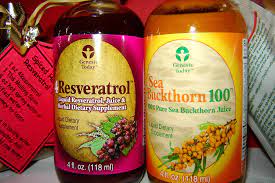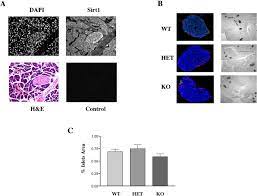Resveratrol Provides Numerous Health Benefits
Video Link: https://vimeo.com/182769053
Video Download: The Versatility Of Resveratrol
Video Stream: The Versatility Of Resveratrol

The Versatility of Resveratrol
Resveratrol research is one of the most exciting and active areas of Anti-Aging and Longevity Research. Resveratrol is a natural compound from grapes, cocoa, and other natural food products. The more we learn about this unique compound, the more medical opportunities reveal themselves.
In this article, we will discuss a number of exciting potential benefits that scientists have been studying in recent years.
Resveratrol Acts as an Anti-Oxidant
Evidence suggests that Resveratrol may benefit the body as an Anti-Oxidant. Anti-Oxidants are molecules that can safeguard the body from free radicals. Free radicals are rogue electrons that result from chemical reactions within the body or outside sources like sunlight.
The body will inevitably create these free radicals as they result from the complex chemical reactions that keep us alive.
In comes Anti-Oxidants: Anti-Oxidants act as a protective shield, preventing these free radicals from causing more damage than the body can repair. Although other Anti-Oxidants such as Vitamin E and Vitamin C offer more Anti-Oxidant protection, Resveratrol has the potential to offer some assistance to the body in this capacity.
Although it may be beneficial, don't skip out on your daily Vitamin C because the Anti-Oxidant power of this and other vitamins and nutrients outweigh that of Resveratrol.
Resveratrol Both Stimulates and Slows Down Estrogen Production
Estrogen is one of a relatively large group of hormones known as Steroids. Estrogen is primarily considered a female hormone, although males also produce it.
Resveratrol seems to have the capacity to inhibit and encourage the production of Estrogen in the human body, depending on the type of tissue in question. Further research is required to determine how Resveratrol may treat estrogen-related issues such as Menopause and Breast Cancer.
Resveratrol is molecularly similar to a standard Estrogen booster known as diethylstilbestrol. This similarity causes the hormone to encourage Estrogen Reception in certain body parts. The differences between the two structures make Resveratrol function as an Estrogen Antagonist in certain circumstances.

Resveratrol as an Anti-Cancer Supplement
Resveratrol may be able to safeguard the body against cancer in a number of different ways. One way that seems particularly beneficial is that there is strong evidence that Resveratrol can increase the rate at which the body expels carcinogens, increasing the risk of cancer when they remain in the body for too long.
Also, Resveratrol prevents certain types of carcinogenic cells within the body from ever activating. Many cancer-causing agents have to be exposed to certain forms of stimuli before they become active.
Resveratrol may be able to prevent this activation from occurring in some types of cancer-causing agents.
These two anti-carcinogenic functions are interconnected because these unactivated cancer-causing agents are evacuated from the body faster than those activated.
Resveratrol May Limit the Ability of Certain Cancers to Propagate
Research has shown that Resveratrol can limit the activity of many cancerous tissue types. After a DNA molecule has been pathologically altered, the cell can freeze the process of cell reproduction to fix the broken DNA molecule or choose to self-destruct to preserve the integrity of the entire organism if it is not possible to restore the health of the DNA effectively.
If cells with malfunctioning DNA can reproduce, this can lead to mutations, eventually leading to cancer. There is evidence that Resveratrol can increase the capacity for self-regulation at the cellular level, encouraging malfunctioning cells to break down. Some research has shown that Resveratrol can convince specific cancer cells to shut down and die off.
Cancer cells function much differently than normal healthy cells. Cancer cells are normal cells that begin replicating out of control and no longer have a functional means to suspend cell reproduction. Resveratrol can enter these cancerous cells, recognize a severe issue that threatens the host, and induce apoptosis, killing the cancer cell as it should have died when it first became abnormal.
In addition to preventing cancer and the cell division of mutated cells, Resveratrol may be able to prevent certain types of cancer from spreading. In initial studies, Resveratrol can prevent the dispersal of certain enzymes which allow cancers to spread.
In addition, some laboratory evidence is that Resveratrol can also prevent the synthesis of abnormal blood vessel development, which feeds blood to the cancer site.
More Information about Resveratrol and Cancer
There are many types of cancer that Resveratrol may be able to treat. Among the types of cancer which have shown promising results with Resveratrol, Cancer Treatment is cancers of the thyroid, pancreas, colon, stomach, prostate, and breast. In all of these forms of cancer, Resveratrol has been able to stop or slow the development of cancerous tissue in vitro.
In animal research, Resveratrol has been shown to slow down or stop the development of breast cancer, intestinal cancer, and cancer of the esophagus. In these cases, cancers were caused by the ingestion of carcinogens.
Although Resveratrol has shown levels of promise in these forms of cancer, research has shown that Resveratrol does not alter the advancement of lung cancer caused by smoking when taken orally.
Resveratrol and Colon Cancer
In the case of colon cancer, oral administration of Resveratrol in mice with a predisposition toward colon cancer has produced varied results. In other studies using rats, however, Resveratrol seems to reduce the risk of colon cancer in the presence of known carcinogens that cause the disease.
There is no clear evidence that Resveratrol can protect the body against cancer in human patients. Still, the research seems somewhat promising that the supplement has at least some protective capacity.
Currently, medical trials are being performed to discover if Resveratrol can reduce cancer risk in human patients or may provide some benefits to those fighting against cancer.
fighting against cancer.
Research regarding Resveratrol Metabolism in Humans shows that increasing the amount of Resveratrol consumed in the diet may not produce a high enough level of Resveratrol in the body to preserve the body against cancer, but this does not mean that Resveratrol may not be helpful regarding cancer treatment.
In the future, it is very likely that medical forms of Resveratrol, or medications derived from Resveratrol, may be highly beneficial in treating certain forms of cancer.
Anti-Inflammatory Resveratrol Benefits
At its core, inflammation is an attempt by the body to heal itself, although inflammation often causes more problems than it resolves. Inflammation increases the rate at which cells in the inflamed area divide, which also slows down the rate at which cells die off.
There is evidence that Resveratrol may be able to limit certain enzymes which encourage the process of inflammation.
Many hypothesize that Resveratrol may be an effective means to limit inflammation and reduce pain and discomfort related to inflammation. There is no downside to increasing Resveratrol intake to attempt to alleviate inflammation. It may even prevent the need for unhealthy acetaminophen products in some patients!
Anti-Aging Benefits of Resveratrol
There is significant evidence that the dietary act of Caloric Restriction can produce health benefits in at least some types of animals. Caloric-Restriction is a diet in which an organism only consumes around 70% of its standard recommended daily value of calories while maintaining proper nutrition in every other aspect of the diet.
Caloric restriction has been particularly successful in mammalian studies, a class to which we as humans belong. In a study performed with yeast, it was proven that restriction of calories increases the physiological response of an enzyme the name of SIR-2.
Resveratrol also can increase the response of SIR-2 in yeast in a manner that mimics that of Caloric Restriction. It was also discovered that Resveratrol could also increase the lifespans of fruit flies and worms.
Resveratrol Increases the Lifespan of Various Members of the Animal Kingdom
In the case of yeast, Resveratrol was able to extend the period during which yeast could actively replicate by seventy percent. Among more complex organisms, Resveratrol was able to extend the life of one species of fish known as the Turquoise Killfish.
Resveratrol has also been shown to extend the lifespans of mice as well. In one piece of research, the benefits of Resveratrol equaled those of Caloric Restriction in mice.
Scientists added Resveratrol to the diet of mice on a high-caloric regimen, and the extension in lifespan was very near that of mice fed under the guidelines of Caloric Restriction.
Resveratrol Boosts SIRT-1 Stimulation
There is strong evidence that the same benefits of Resveratrol in rats and other species may also apply to humans. The human equivalent of SIR-2 is SIRT-1, and in vitro, Resveratrol can vastly increase the stimulative response of SIRT-1.
 It is unclear whether ingested Resveratrol will have this exact same effect in humans. Still, other treatment options will likely arise from this research, even if the benefits of SIRT-1 activity are not achieved through dietary consumption alone.
It is unclear whether ingested Resveratrol will have this exact same effect in humans. Still, other treatment options will likely arise from this research, even if the benefits of SIRT-1 activity are not achieved through dietary consumption alone.
Although dietary use of Resveratrol may not directly stimulate SIRT-1 activity, there is evidence that a lower dosage of Resveratrol consumption can improve the function of the brain, heart, and skeletal system in rodent subjects similar to a diet of calorie restriction.
Resveratrol promoted Anti-Aging activity in these subjects, slowing the rate of natural cardiovascular decline as a natural product of aging. Scientists of in the process of studying the effects of Resveratrol on human cardiovascular health.
The Future of Resveratrol
Although there is still a lot of research to be done regarding the health impact of Resveratrol in human patients, it is clear that Resveratrol produces many benefits without any particular adverse risk associated with its consumption.
We encourage patients to seek sources of Resveratrol to supplement their diet with this natural and potent health booster.
In our next article, we will discuss the potential benefits of Resveratrol regarding the Heart and Cardiovascular System.
- Studies Regarding The Potential Benefits Of Resveratrol [Last Updated On: February 19th, 2025] [Originally Added On: September 26th, 2020]
- Resveratrol Supplements Good For The Heart? [Last Updated On: August 28th, 2024] [Originally Added On: September 27th, 2020]
- Natural And Supplemental Ways To Add Resveratrol To Your Diet [Last Updated On: August 31st, 2024] [Originally Added On: September 28th, 2020]
Word Count: 1628







